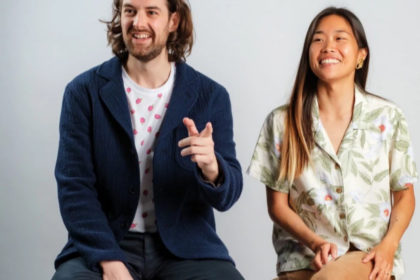
The front page of the Financial Times featured a new wave of alternative foods: chocolate and coffee, but without the beans.
Cultivating both cocoa beans for chocolate and coffee cherries for coffee at such a high rate for global consumption is damaging to the environment. It’s linked to deforestation. The working conditions for many of the farmers are also deplorable, with child and slave labor and poor wages. Now multiple startups are trying to make a market for bean-free products.
“You realise that a lot of our favourite foods, whether it’s beef burgers or a cult of coffee or a chocolate bar, there’s so much damage,” said Johnny Drain, chief technology officer of WNWN Food Labs, a London-based maker of cocoa-free chocolate. “Not just to the climate but to the people, typically in developing countries who are producing those products for us.”
Drain is a fermentation expert who formerly worked with restaurants to make unique flavor profiles using fermentation. He’s founded WNWN with Ahrum Pak, a former financier now working in the foodtech space with Drain (both pictured). Their chocolate is made from fermented barley and carob.
More startups are, too, trying to be a solution to an unhealthy chocolate and coffee industry. In Munich, Planet A developed a cocoa-free chocolate which has chief ingredients of fermented oats and sugar beet. They call it “Nocoa.” In the U.S., Voyage Foods and California Culture make chocolate from lab-grown cocoa.
Bean-free coffee, meanwhile, has been created by two U.S. startups – Atomo in Seattle uses date seeds, chicory root, grape skin and green tea to create a canned cold brew coffee. Compound Foods in San Francisco. The latter is recreating coffee using synthetic biology and fermentation.
“We want to give consumers a choice,” said Andy Kleitsch, co-founder of Atomo, who added that although they had been worried that “the coffee industry would hate us or that the baristas might hate us, the reception has been positive”.
Many of these entrepreneurs note alt products are not the only solution to an environmentally-damaging food industry. Drain adds: “It’s just one additional way of trying to change an industry that is built on inequity and slave labour.”
Read more (Financial Times)
